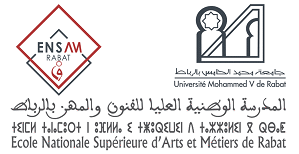| Speakers in CIMQUSEF20 | |
|---|---|
| Abdullah AWAD – Jordan | |
| Bio: Abdullah M. Awad (PhD) is the founding director of the Institute for Critical Thought, where he builds original curricula based on indigenous knowledge and teaches at the intersection of Arab, Islamic, and Western social thought. Over the course of the past decade, he has led programs alongside universities, governments, and civil society to nuance religious, cultural, and social debates in the humanities. He is especially interested in the role of innovative initiatives, including those related to science and education, in the Arab world and internationally. | |
| Abstract: This paper intervenes in this state of affairs by focusing on innovative pedagogical model at the Institute for Critical Thought in Amman, which foregrounds a holistic learning environment derived from Arab-Islamic resources. It specifically focuses on how institutional structures and pedagogical tools may create the conditions for social and emotional learning for a uniquely diverse set of adult members of society. As such, the paper engages from within the contemporary Arab-Islamic context with the possibilities of inclusive education. | |
| Hee Kyung PARK – South Korea | |
| Bio: Hee Kyung Park is a doctoral candidate in the School Psychology program at the University of Massachusetts Amherst. She completed Ed.M. in Prevention Science and Practice at the Harvard Graduate School of Education, and also received M.A. in International Educational Development from Columbia University. Her international experiences of working at UNESCO and being involved in several SEL projects at the Harvard EASEL lab led her to develop research interest in the development, implementation, and assessment of culturally responsive social-emotional learning interventions. She is also passionate about implementing SEL in her home country, in South Korea, as she works as a Chief Researcher at Hibud Inc., Korea based company. |  |
| Abstract: This presentation shares the experience of developing a culturally responsive SEL program that fits the Korean education context. Twenty 1st grade students from an urban area in Korea participated in a pilot program called, “Emotion Coding”. Through the case study, we will introduce our SEL program, implementation process, preliminary results on student outcomes, and challenges. We hope to provide insights and recommendations for educators, practitioners, and policymakers when developing and implementing SEL programs for the first time in their respective culture, within a public education setting. | |
| Vishal TALREJA - India | |
| Bio: Vishal is an Educator and Social Entrepreneur. He co-founded Dream a Dream (www.dreamadream.org) along with 11 others. Dream a Dream a Dream is a registered, charitable trust empowering children and young people from vulnerable backgrounds to overcome adversity and flourish in the 21st century using a creative life skills approach. Currently, works with 10,000 young people a year through two innovation labs – After School Life Skills Programme and Career Connect Programme; has trained over 35,000 teachers/educators impacting over 875,000 children and young people and impact over 3+ Million children through various state government partnerships in Delhi, Jharkhand, Uttarakhand, Telangana, Nagaland and Karnataka. Vishal has co-authored 4-research papers with Dr David Pearson and Dr. Fiona Kennedy related to Life Skills in the Indian context and has written a host of articles, white papers, policy briefs related to Education Transformation. |  |
| Abstract: “SEL and Education Transformation: Large Scale Systemic Change examples from India” The presentation will explore case studies of inclusion of SEL in Education Transformation at a systemic level across India. There will be examples of introductions of new curriculums, new pedagogical approaches, new training designs for teachers and new assessment frameworks that have helped integrate SEL within public education systems in India. The presentation will also share learnings and insights from these examples, finally proposing the role that SEL interventions can plan in transforming the core purpose of education. | |
| Jennifer BATTON – USA and José Fernando Mejía - Colombia | |
| Bio: Jennifer Batton, MA, Co-Chair, GPPAC's PEWG, provided training and consultation for educators and policy makers in 23 countries. She served as a Senior Consultant for UNESCO – IIEP and on the OAS Advisory Board for the Inter-American Program on Education for Democratic Values and Practices. She is the former director of education programs for the state government office, the Ohio Commission on Dispute Resolution and Conflict Management, where was responsible for strategic planning to meet the needs of 3,600 schools and 52 teacher training colleges. She has an MA in Conflict Analysis, 39 hours toward a Ph.D. in Conflict Analysis, and is currently completing her Ph.D. in Urban Education, Policy Studies. Her current dissertation research is on what policies and programs support access, retention, and completion of a degree in higher education for students who are refugees. | |
| Bio: Jose Fernando Mejia, M.A. is the executive director of Aulas in Paz (Classrooms in Peace) in Colombia. He currently serves as the Chair of the Board of Educapaz and as Director of the Latin-American Hub for the Prevention of Violence Against Children in Schools, one of the hubs of the Coalition for Good Schools. His experience includes serving as a consultant for UNESCO and the World Bank. He holds a B.A. in Psychology and an Ed.M. in International Education Policy from Harvard. He is a member of the Peace Education Working group, Global Partnership for the Prevention of Armed Conflict. | 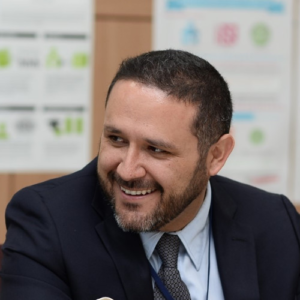 |
| Abstract :This presentation will provide examples of how the knowledge, skills and abilities associated with Social Emotional Learning (SEL) are being integrated around the globe into required and recommended educational policies, standards, programming, teacher training and direct practices in efforts to prevent, address and manage conflict. Country examples from the Global Partnership for the Prevention of Armed Conflict’s Peace Education Working Group Members representing government and civil society partnerships from countries including Armenia, Colombia, the Philippines, the Kyrgyz Republic, Serbia, Montenegro, Ukraine and Australia. The examples will include the voice of GPPAC members from those countries, and their lessons learned over the last 25 years. | |
| Wanying ZHANG - China | |
| Bio : Wanying Zhang is a doctoral candidate at the Department of Education, Beijing Normal University. Her main area of interest lies in the field of principal leadership and school management improvement, with a particular focus on the perspective of social and emotional learning (SEL). Her passion for exploring SEL has led her to integrate data science into her research approach. She aims to use data-driven methodologies to gain insights into how principal leadership and school management can be enhanced through the implementation of social and emotional learning strategies. |  |
| Abstract: In 2011, the Ministry of Education (MOE) of China, in partnership with UNICEF, initiated a SEL program in China. Up to now, this program has been rolled out to 275 elementary school in 11 provinces in eastern and western China. In the decade to 2021, a SEL implementation model and pathway with Chinese experience and characteristics was developed based on the needs of Chinese students’ social and emotional development. This includes a theoretical framework, curriculum materials, implementation approaches, tracking, evaluation, and other aspects. The expert team of the Social and Emotional Learning (SEL) project, led by Professor Yaqing Mao, collectively deliberated and defined the social and emotional competence of Chinese students. Chinese scholars have divided this ability into two main categories: cognitive and regulatory. Cognitive refers to an individual’s ‘knowing how to do,’ while regulatory pertains to an individual’s ‘actual performance.’ | |
| Samira ALAYAN – Jerusalem | |
| Bio: Dr. Samira Alayan is a Senior Lecturer and Researcher at the Hebrew University of Jerusalem and at the David Yellin Teacher College. She specializes in education in conflict societies, analysis of curriculum and textbooks, identity in the Middle East, and Palestinian Education in Israel, East Jerusalem, and the West Bank. She has a Ph.D. in Sociology of Education and Criminology from the Hebrew University of Jerusalem and did her post-doctoral research in Germany. In recent years, her field of research has focused on education in East Jerusalem and how governmental policies impact this subject and Palestinian woman from East Jerusalem learning in Israeli academic universities. |  |
| Abstract: Over the past two decades, Palestinian education curricula have undergone significant transformations, with the latest edition introduced in 2018/19 reflecting a profound shift in the portrayal of Palestinian identity and history (Alayan 2017, Hussain 2013). Textbooks, as fundamental components of pedagogic theory, play a pivotal role in transmitting historical narratives, shaping the identities of students, and influencing their perspectives on others. Building upon previous research (Alayan and Riley 2023), this study pioneers an in-depth analysis of the incorporation of Social and Emotional Learning (SEL) principles in the Palestinian textbooks of 2018/19, drawing from existing literature. | |
| Staci B. MARTIN - USA | |
| Bio: Staci B. Martin, EdD, is a learner, educator, Fulbright Scholar, Rotary Peace Fellow, Speaking for Ourselves Action Research (SOAR) researcher who researches critical hope & despair, psychosocial and social-emotional learning, peace-building, higher education in protracted and conflict contexts. She has designed and implemented psychosocial peace-building educational programs in four countries: South Africa, Nepal, Jamaica, and Kenya. Dr. Martin is a faculty member of the School of Social Work at Portland State University, Portland, Oregon. | 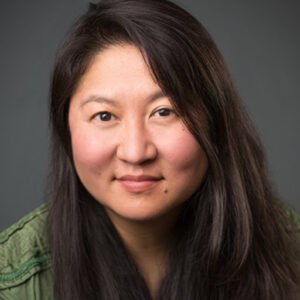 |
| Abstract : The purpose of the paper is to do a retrospect of co-researchers who participated in an arts-based psychosocial peacebuilding educational course in Kakuma Refugee Camp, Kenya, to see where and what they are doing now with that experience. Methods: The research applied Speaking for Ourselves Action Research approach, which is an approach that supports impacted communities to speak for themselves. Findings: This paper will discuss how the psychosocial peacebuilding course influenced co-researchers’ perceptions of hope. We look back in order to understand how we embodied our hopes, as well as if we ran into manufactured/false hopes. Significance: This paper argues that education and hope are protective factors for young adults as well. Education, in particular higher education, can serve as a protective factor and a beacon of hope for refugees. | |
| Esther CARE - Australia | |
| Bio: Professor Esther Care works with government and non-government organisations on education reform, with a focus on 21st century skills and assessment. She coordinated the pilot of a new indicator of SDG 4.7, and works with APCEIU on global citizenship education in Asia. She is currently Technical Team Lead with the AliVE initiative in East Africa on assessment of life skills and values through, across Kenya, Tanzania and Uganda. From a career in academia spanning 20 years at the University of Melbourne. She is the author of publications focused on 21st century skills, as well as psycho-educational assessment, formative assessment, education system reform, and collaborative problem solving. |  |
| Abstract : The large number of national systems that are increasingly moving their competency-based curriculum goals beyond specific subjects to include a variety of other human competencies is confronting challenges. These include lack of understanding of the competencies themselves – whether they are referred to as generic skills, life skills, 21st century skills, or other; and lack of information about how integration of cross-cutting or transferable competencies into curriculum, teaching and learning, might be managed. The aspirations and the challenges are clearly evident in East Africa. However, demonstrating progress since similar findings emerged in Asia over the past decade (UNESCO, 2015; 2016), there is now growing awareness of the need to engage with education ministry sections across assessment, pedagogy, curriculum, and teacher training. | |
| Burcu Meltem ARIK – Turkey | |
| Bio: Burcu Meltem Arık has been the Education Observatory Coordinator of ERI since 2017. She is also Vice President of Roots & Shoots Turkey, a Board member of Network of Education Policy Centers (NEPC), a member of the International Union for Conservation of Nature (IUCN) Commission on Education and Communication (CEC), co-author of the Council of Europe’s (CoE) T-Kit 13: Sustainability for Youth Work and T-Kit 11: Mosaic: The training kit for Euro-Mediterranean youth work books. Burcu lectured “Ecological Literacy and Sustainability” and “Biomimicry” courses at Istanbul Bilgi University between 2015 and 2020. She has a BSc in Chemistry (METU) and an MA on Climate Change Education Policy (Istanbul Bilgi University). | 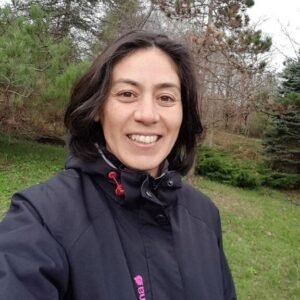 |
| Abstract: Connection to nature is deeply associated with SEL and SEL is essential to create regenerative, restorative, multicultural worlds that are deeply connected to nature (Lanza et al., 2023). Education Reform Initiative (ERI) is a think-and-do tank based in Türkiye that contributes to the structural transformation of K-12 education through qualified and open data, constructive dialogue and common sense. We expect to present ERI’s information and policy brief -in preparation- entitled “SEL for Earth Kinship”, which discusses potential domains of integration in the international, national, regional and local education policies, and brings together good practices in education from different regions of Türkiye. The discussions of domains are based on ‘intersectionality’ and the good practices are based on ‘pluriversality’. We appeal to ‘tricksters’ such as “degrowth”, “centrism-lessness”, “diffraction”, and “nature culture” that persistently criticize ‘norms’. However, we will depart from the “over-rated, over-emphasized, and over-utilized” notion of critique that disregards reading with care and lacks ethical practices (Barad, 2007). Instead, we will look for “patterns of differences that make a difference”. | |
| Sonya TEMKO – USA | |
| Bio: Sonya Temko is a Research Manager at the EASEL Lab at the Harvard Graduate School of Education. Her research focuses on contextualizing and adapting social and emotional learning for cultural relevance in contexts of crisis and conflict. Sonya also has classroom experience teaching various subjects and age groups, including in Morocco and in France as a Fulbright grantee. Sonya holds an Ed.M. in International Education Policy from the Harvard Graduate School of Education and a B.A. in French and Francophone Studies and English Literature from Mills College. Beyond research, Sonya loves to read and write fiction, swim, and surf. | 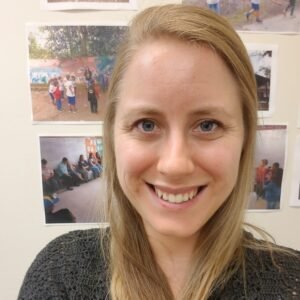 |
| Abstract: In response to growing interest in social and emotional learning for education in emergencies, and the need for coherence, precision, and alignment in the field, the Inter-agency Network for Education in Emergencies (INEE) convened a research-practice partnership to develop a toolbox for Psychosocial Support and Social and Emotional Learning (PSS-SEL) in education in emergencies. The online, open-source toolbox contains data-based visual tools to look within and across approaches to PSS-SEL from over fifty countries, tools to guide localization and contextualization efforts serving various objectives, as well as additional resources that provide further information about particular topics of interest within the project and the field. This presentation will describe the process of developing the PSS-SEL Toolbox in which researchers partnered with organizations in 13 different countries to field-test the tools before publicly launching the site. We will discuss findings and lessons learned from this multi-year, multinational project. | |
| Grace W. Ngugi MAINA – Kenya | |
| Bio: Grace Ngugi Maina is a deputy director in charge of special programmes at the Kenya Institute of Curriculum Development. She has 8 years of teaching and 22 years of experience in curriculum development. Her passion is in engaging and advocating for inclusion of social emotional learning, life skills education, values education, parental empowerment, mentorship, childcare and protection, career guidance, psychometric, disaster risk reduction education, and education in emergency. Grace is an author, amd possess a wealth of knowledge on matters of education. She has facilitated many educational related forums nationally and internationally. Grace is a member of Karanga: The Global Alliance for Social Emotional Learning and Life Skills; of KICD Management; and is an accredited counsellor supervisor. |  |
| Abstract: This paper focuses on Social Emotional Learning (SEL) and its key components (i.e., self awareness, self-management, social-awareness, interpersonal skills, and decisions making) from a curriculum perspective. Mainstreaming process of SEL in the three dimensions (formal, nonformal and informal) of the curriculum will be highlighted. Further, I will discuss how a model center for SEL can support curriculum writers and implementers who aim to mainstream and facilitate SEL inside and outside the classroom. SEL is more about forming learners and not merely about informing them. The ‘Emazi SEL curriculum (2023) indicates that children require social emotional skills to be effective learners and successfully transition into the world of work. Teachers should model SEL competencies, for learners to appreciate the significance of the SEL competencies espoused. | |
| Olli-Pekka HEINONEN – Finland | |
| Bio: Mr Olli-Pekka Heinonen became the 8 th Director General of the International Baccalaureate Organization on 1 May 2021. Prior to joining the IB, Mr Heinonen was Director General of the Finnish National Agency for Education where he worked from January 2017. Mr Heinonen had an active career in politics in Finland between 1994 and 2002: he was Minister of Education and Science from 1994-1999; Minister of Transport and Communication from 1999-2002 and a Member of Parliament from 1995-2002. From 2002 to 2012, Mr Heinonen was Director of Yle, the Finnish national public broadcasting company, before joining the Finnish Prime Minister’s Office in March 2012 as State Secretary, responsible for organizing and leading the office. He has also been responsible, as State Secretary, for the portfolios of the Ministry of Education and Culture, the Ministry of Internal Affairs, the Ministry of Foreign Trade and Development and then as State Secretary at the Ministry of Finance of Finland. | 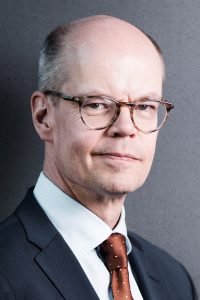 |
| Abstract: The world has evolved rapidly with climate change, globalization, AI, the covid pandemic, unsustainable growth, and other disruptive elements such that traditional educational approaches are unlikely to be sufficient for our youth to flourish in this new reality. The IB has long been an advocate of supporting the development of a broad range of human capacities and responsibilities that go beyond academic success, including social and emotional learning skills. In this session I will share how, through close partnership with IB and non-IB schools globally, we are undertaking research and innovation to be even more intentional about supporting student wellbeing and ensuring our students have the competencies needed for future success in this new reality. | |
| Juliette TORABIAN – Switzerland | |
| Bio: Dr. Juliette Torabian is a postdoctoral Fellow at University of Luxembourg and a senior expert in International Development and education with more than 20 years of field experience in Southeast Asia, Central and West Asia, SSA, and Western Europe. Dr. Torabian is also the Regional Editor (Western Europe) for the Journal of Comparative and International Higher Education, CIES and an editorial board member of Sustainability and Climate Change journal of University of Michigan. She has extensive research and project management background in social and educational inequalities and has advised governments and INGOs in their strategic planning and policy formulation to tackle inequalities. | 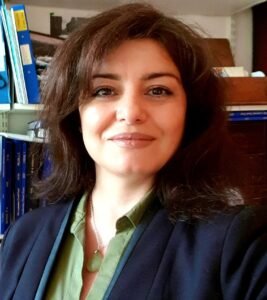 |
| Abstract: Social and Emotional Learning (SEL) has been on the agenda of international organisations such as the OECD. In effect, the OECD survey on SEL (2021) marks a shift in perceptions of the role of education across our globalised societies. While academic achievement persists as a globally rigid and untouchable frame across education systems based on shared intergenerational and stakeholder (parents/teachers/students) perceptions, the current societal, political, and economic tensions and dilemmas of our interconnected world calls for social and emotional skills that are not perhaps best captured- but do contribute to- in grades and academic attainment. We now have more evidence from research (Pit-Ten Cate, et al, 2022; Torabian, 2022) that social and emotional skills are nurtured and developed differently among students with different gender, linguistic and socio-economic background, parental education, and that external factors such as school composition, teachers' perceptions, neighbourhood, and peer influence bear an impact on students' wellbeing, sense of belonging, and eventually their academic achievement. In this keynote, in addition to discussing the relation of SEL and inequalities, I would also share an overview of the outcomes of an EU-funded project "PIONEERED" from 9 countries of Europe with an intersectionality multi-level perspective on policies and practices tackling educational inequalities. Having mapped and compared data, policies, and practices, our research demonstrates the significant impact of social and emotional skills and wellbeing of students on school alienation (Hadjar, 2022) and academic attainment based on an intersectional perspective of their ascribed characteristics and external factors. | |
| Régis MALET – France | |
| Bio: Professeur en Sciences de l’éducation et de la formation à l’Université de Bordeaux, Régis Malet a co-administré puis dirigé le Laboratoire Cultures, Education, Sociétés (LACES EA7437) de 2012 à 2018, avant d’être nommé membre senior de l’Institut universitaire de France en octobre 2018. Auparavant, il avait été Professeur et avait dirigé la Faculté des Sciences de l'Éducation de l'université de Lille 3 (2007-2009) et le pôle Recherche, Innovation et Développement international de l'Ecole Supérieur du Professorat et de l'Education d'Aquitaine (2014-2019). Président de l’Association francophone d’éducation comparée (AFEC), directeur de publication et rédacteur en chef de la revue Éducation Comparée (28 volumes publiés depuis 2006), il a créé et co-dirige depuis 2017 le Master bilingue 'Formation de formateurs à l'International' de l’Université de Bordeaux. Il co-dirige à compter de 2022 une nouvelle collection des éditions Brills « Comparative and International Education : Francophonies ». A l’Université de Bordeaux, il est co-responsable de l'Equipe de Recherche Comparatiste en Education du LACES, de l'axe "Diversités, Cultures, Sociétés" du LACES et co-anime depuis 2015 le séminaire des doctorants du LACES. | 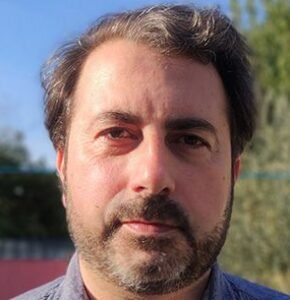 |
| Abstract: Développer les compétences sociales et émotionnelles par l'éducation. Une question curriculaire, mais aussi écologique, pédagogique et politique. Promouvoir à l'école les compétences sociales et émotionnelles telles que la gestion des émotions, le renforcement de la résilience et la prise en compte des autres joueront est sans aucun doute un enjeu important pour la promotion chez les élèves et les enseignants même d'un sentiment de bien-être et leur capacité à apprendre et se former tout au long de la vie. Sur la base à la fois d'études comparatives sur cette question et d'exemples illustratifs, on prendra la mesure de ce que ces objectifs ne peuvent s’accommoder d'une seule perspective curriculaire ou programmatique, qui consisterait, par exemple, à assortir cette ambition de cours dédiés, mais implique une approche raisonnée et étayée par les recherches, des dimensions épistémiques (quels savoirs et quels interactions entre eux?), pédagogiques (formes et stratégies d'éducation/apprentissage?), écologiques (espaces et temps d'éducation et de formation?) et politiques (quelle visée transformative ou adaptative pour les individus et la société?). | |
| Frederic FOVET – Canada | |
| Bio: Frederic Fovet is an academic, researcher, consultant and UDL & Inclusion specialist. Over the period of his doctorate, Frederic held the position of Director of the Office for Students with Disabilities at McGill. During close to four years he was responsible for triggering and sustaining, from that office, a campus-wide move towards UDL implementation. His PhD itself focused on students in K-12 who feel marginalized and alienated by their school experience. |  |
| Abstract: The scholarship on social emotional learning (SEL) has grown exponentially over the last decade. While its beneficial impact on best practices in school is immediately palpable, developing and strengthening buy-in for SEL in schools has, on the other hand, been strenuous in many contexts globally. One reason for this pushback is the lack of clear current theoretical connection, in the eyes of teachers, with existing policies and practices that are already in place in most jurisdictions. In most pre-service teacher training, for example, just as in in-service professional development, SEL sits aside of inclusion as a topic and is presented to stakeholders as entirely distinct. In the field, similarly, SEL integration projects tend to rival projects on inclusion rather than complement them. This creates a struggle for resources which is counterproductive. It also creates a degree of confusion in the mind of many teachers, which can lead to disengagement and push-back, when in fact these agenda complement each other pedagogically with ease. Much of this tension is historical and relates to the way SEL was introduced at a distinct stage, in most jurisdictions, from other inclusive policies. This dichotomous strain is also due to the fact that the stakeholders promoting both agendas often have distinct theoretical backgrounds and professional training. This session will examine solutions to this tension and engage participants on how to optimally conceptualize SEL within existing legislative and pedagogical frameworks for inclusion. The session will first review and analyze the existing tension between inclusion initiatives and efforts to grow SEL in K-12 schools. The second part of the presentation will examine in more detail qualitative data gathered in Canada, among K-12 teachers, that explores these individuals’ perceptions around the place of SEL within best practices for inclusion. The third section of the session will focus on solutions that may help erode or eliminate this tension and will seek to offer participants hands-on strategies that might be useful in their own national contexts. | |
| Rene LANGEVIN – Canada | |
| Bio: Titulaire d'un doctorat en psychopédagogie à l'Université de Montréal, et études post-doctorales à la University of British Colombia dans le domaine de la psychopathie. Mes travaux se situent à la croisée de plusieurs champs de recherche, soit la psychologie de l’éducation, la psychopathologie et l’éducation inclusive. Plus précisément, je m’intéresse aux pratiques pédagogiques destinées aux élèves ayant un trouble du déficit de l’attention/hyperactivité (TDAH) ainsi que ceux aux prises avec un trouble du spectre de l’autisme (TSA). Je m’intéresse également à l’accompagnement des élèves ayant des difficultés comportementales externalisées (p.ex : agressivité, opposition avec provocation et trouble des conduites, etc.) ainsi que des difficultés comportementales internalisées (p.ex : anxiété, dépression, etc.). Enfin, mes dernières recherches portent sur les compétences émotionnelles chez les étudiants (es) en formation initiale à l'enseignement lorsque ceux-ci sont en stage. |  |
| Abstract: The purpose of this research is to explore the effects of a program based on Social and Emotional Learning (Collaborative for Academic Social and Emotional Learning, 2020) in a group of students attending a minority Francophone school in Alberta, Canada. The sample consisted of 40 students between the ages of 10 and 12. All were assessed using the French version of the Social Emotional Learning (Gresham et al., 2017) on two occasions (pre- and post-program) and 30 participated in the program. This test is composed of the five skill areas of the Collaborative for Academic, Social, and Emotional Learning (2020) namely, 1) self-awareness, 2) self-management, 3) social awareness, 4) interpersonal skills, and 5) responsible decision making, and was administered over a five-month period for two hours per month. If our hypothesis is confirmed, we should observe a significantly higher improvement in the five skill areas mentioned above for participants in the experimental group compared to participants in the control group. These results will be discussed in light of the latest research on the subject. | |
| Sigamoney NAICKER – South Africa | |
| Bio: Sigamoney Naicker PhD (University of Western Cape) is extra-ordinary Professor at the University of Western Cape in Cape Town. Sigamoney was also a National Commissioner on the Committee for Education Support Services appointed by the then President, Nelson Mandela to investigate the state of Special Education during South Africa’s transition to a democracy. He is currently Chief Director of Inclusive Education in the Western Cape Education Department. .Dr Sigamoney is greatly respected educationist figure in South Africa and worldwide. Sigamoney is a writer and speaker and his latest book is titled Inclusive Education in South Africa and the Developing World: The Search for an Inclusive Pedagogy. Dr Sigamoney worked previously in the National Department of Education in Pretoria, South Africa as National Director of Inclusive Education. He has assisted in the write up and release of Education White Paper 6 on Special Needs Education: Building an Inclusive Education System in South Africa. He is an important asset in the worldwide education arena. Dr S Naicker believes if we are not good listener the we are total failures in our professional & professional lives. Listening is for happiness, progress and peace . |  |
| Abstract: Social and Emotional Learning is an important pillar for transformation of education in the developing world. This paper argues that a deficit in social and cultural capital in working class communities is a major obstacle in achieving academic success. Therefore, the paper introduces the notion of social and cultural capital as an impediment to progress and argues that social and emotional learning in the foundation phase is critical for success. Success becomes possible if one advances notions of self-esteem, self-image, self-awareness, self-management, social awareness, relationship skills, and responsible decision-making as well as general well-being for children who experience a great deal of neglect in their homes and communities as a result of their working-class roots. In conclusion the paper argues that there has been very little systemic change to education systems in the developing world because the focus is on middle class and colonial narratives. Systemic transformation is critical for success in the developing world and social and emotional learning is indispensable to this transformation. | |
| Patrick Paul WALSH – Ireland | |
| Bio: Patrick Paul Walsh is on secondment from University College Dublin where is a Full Professor of International Development Studies and Director of the Centre for Sustainable Development Studies in UCD, Dublin. He received a Ph.D. in Economics from the London School of Economics and Political Science. He has held academic positions in Trinity College Dublin, K.U. Leuven, Harvard University and Columbia University. He has also held positions in the United Nations, European Commission, IMF and World Bank. His current focus is on Sustainable Development Education than is informed by Science, Practice and Policy. |  |
| Abstract: Achieving sustainable development will require significant transformations across all sectors of society. Education and training is synergistic with all four dimensions of sustainable development – the social, economic, environmental and governance. The paper undertakes a detailed analysis of gaps in achieving the SDG targets related to education across nations. We document significant disparities within and between rich and poor nations. While rich nations achieve on years in school and STEM they are lacking on non-STEM, environmental and social education during schooling and in the labour force at large. Poor nations have deficits on all fronts. The paper then provides a conceptual framework that links investments in SDG education and lifelong learning to large social returns across the globe. There are significant social investment opportunities that a global finance facility can fill. Thereafter, the paper provides a policy analysis based on the outcome themes of the UN General Assembly Transforming Education Summit in 2022. The main challenges for policy include the transformation of education systems so that schooling from preschool to the end of third level delivers a continuum of education that includes societal and environmental needs using formal and informal education. In addition, transformations to achieve sustainable development will require a large-scale labour market upskilling using flexible education and labour market policies. Finally, significant transfer of resources and capacity from rich to poorer countries will need to support the global transformation of education and professional training to be the great enabler of the UN 2030 Agenda for Sustainable Development. | |
| Ambalika DOGRA – India | |
| Bio: Dr. Ambalika Dogra, an Assistant Professor and a researcher has around 11 years of experience of teaching B.Ed., M.Ed., and Ph.D. Education programs. She received Ph.D. degree in Education from Panjab University, Chandigarh. She also qualified UGCNET in Education in 2010. Her research interests lie in the area of online and blended pedagogy, self-directed learning, inequality, social justice, educational leadership, and research-based tools. She is actively contributing to research on a personal level and currently she is co-investigating an international research project to reduce the dropout crisis in Morocco, which is funded by CNRST, Morocco. She is on a mission to bring innovations in the field of education and improve the lives of marginalised children in the world. Dr. Ambalika is also an educational entrepreneur who is working to provide immediate feedback to teachers and students through research-based surveys. |  |
| Abstract: In contemporary times, there is a prevalent emphasis on both personal and social well-being. This is due to the increasing prevalence of stress and anxiety among learners, leading to suboptimal learning outcomes. The underlying issue often stems from a lack of self-awareness, which serves as the fundamental cause of various problems, ultimately affecting well-being. CASEL, an organization specializing in social and emotional learning (SEL), has identified five primary components of SEL, with self-awareness being a significant aspect. As a result, my session will be centered around the theme of self-awareness and consciousness. This choice is motivated by the belief that genuine educational transformation can only occur through self-realization, a timeless objective of education. Rather than introducing new concepts, the intention is to channel the wisdom imparted by our predecessors and integrate it with modern advancements, including scientific innovations and AI. Consequently, my focus will involve raising awareness within the educational community about an educational philosophy rooted in consciousness, self-awakening, interconnectedness, and AI. It is noteworthy that these principles were not conceived recently but were bestowed upon us by our ancestors millions of years ago. To reinforce this perspective, I will incorporate relevant evidence to substantiate these ideas. | |
| Karori SINGH – India | |
| Bio: Emeritus Fellow/Professor of South Asian Studies and Former Director, South Asia Studies Centre, Univ of Rajasthan, Jaipur, INDIA Research interest in Conflict Studies, Poverty Studies, Development Studies |  |
| Abstract: It may primarily focus on the digitalisation and technical skill generating measures in recent reform measures while social and emotional learning must be an integral component which is being, by and large overlooked in educational reform. Hence, social and emotional distortion unidimensional education which reflecting in growing problems of depression leading to increase in suicide cases among students. It is, therefore, imperative to evolve holistic model of learning which can ensure over all development of the students for responsible and good citizens in a democratic society. | |
| Ghita BENKIRANE– Fiji | 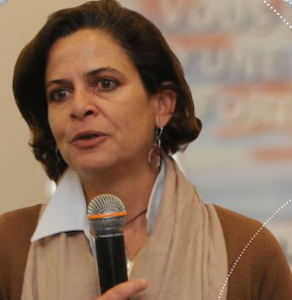 |
| Bio: En 2008, Art&Management® propose des Méthodes de Management Innovantes basées sur le concept de l’Esthétique du Management : aller vers le Bien, le Bon et le Beau, grâce à la Posture Créative et les Neurosciences. Parcours : Executive Master HEC / Oxford Business School – CCC, Consulting and Coaching for Change Ecole de Créativité - Université de Polytechnique Mons (Belgique) École Bernadette Lecerf-Thomas - Neurosciences et Changement (Paris) Brain-Based Leadership - Californie, US |
